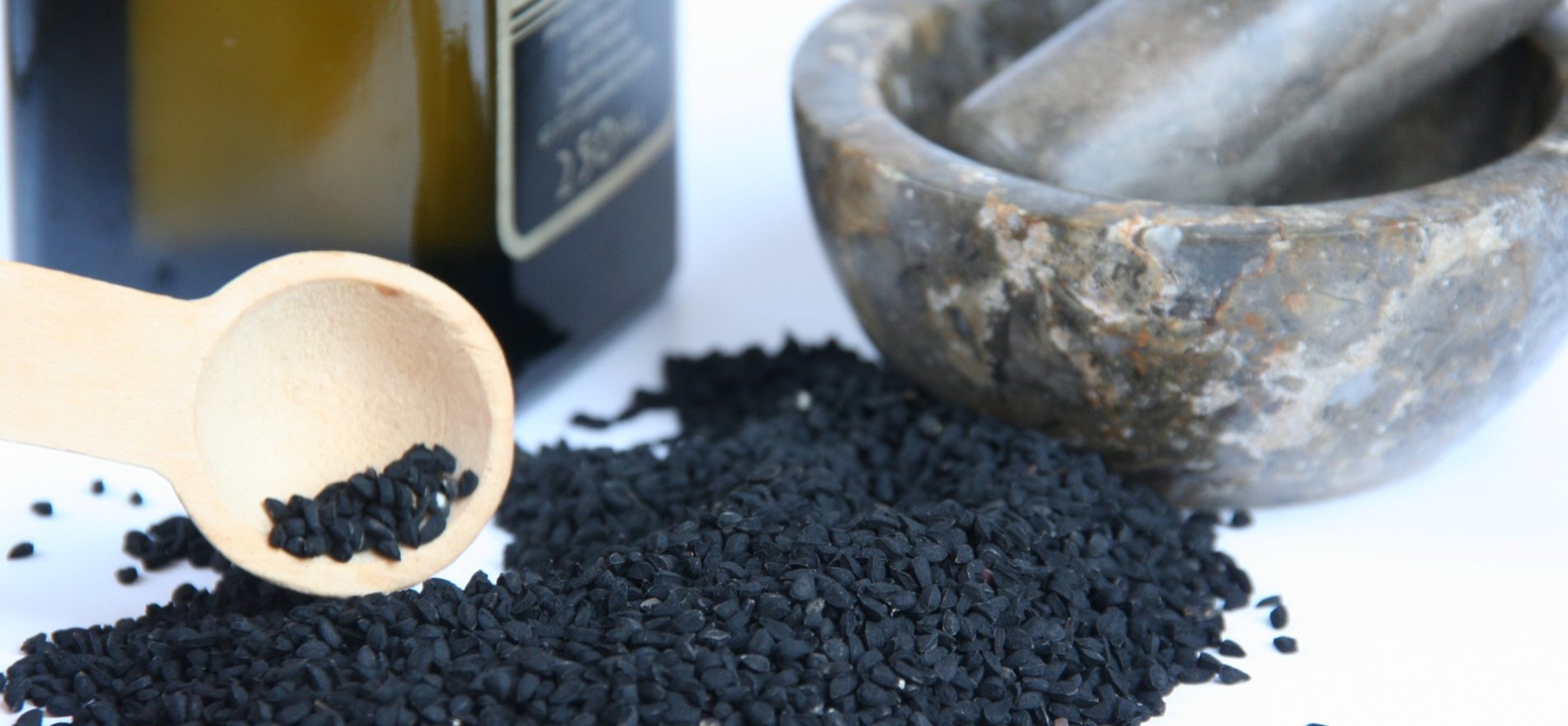Is black cumin effective against cancer? Black cumin is not the same as regular cumin. Black cumin seeds have been used in cooking throughout India, the Middle East and Europe, It is a member of the buttercup family. The seeds are dark and crescent shape. This spice is known by other names such as black seed, fennel flower, black onion seed. The scientific name is Nigella sativa . Black cumin seeds have been used as medicine by these cultures for thousands of years. They have been used for infection, inflammation and cancer. With the interest in alternative medicine at an all time high, scientists have been focussing a lot of attention on the anti-tumor benefits of black cumun seed.
There are about 4 active ingredients found in black cumin seeds. The research in cancer has been centered on 2 of them. They are thymoquinone, found mainly in the essential oil and Nigellone. Thymoquinone (TQ) was used in the majority of the cancer research.
Pancreatic Cancer:
Thymoquinone is believed to decrease inflammation. The development of cancer is accompanied by inflamation and tissue damage. Scientists working from the Kimmel Cancer Center in Jefferson used thymoquinone in their research to treat pancreatic cancer cells and found that, TQ almost abolished the inflammation, in addition when animal models with solid tumors were treated with the oil 67% of the tumors were greatly reduced. Dr Arafat, one of the researchers felt that this could benefit people with pancreatitis and those with the risk of recurrence of pancreatic cancer.
Prostate Cancer
Researchers at Tulane University, School of Medicine, found thymoquinone was able to work well on hormone and non hormone dependent prostate cancers. TQ worked on the cancer cell by generating more of the pathway that inhibit the growth of prostate cancer cells on one hand and depleting other factors that encourage growth of these cells on the other hand.
In another study published earlier in The Journal of Cancer Research, scientists worked exclusively on hormone refractory prostate cancer. They used lab animals to show that thymoquinone was effective in suppression of tumor growth in those animals.
Colon Cancer:
A study published in Journal of Nutrition and Cancer conducted an invivo study to evaluate the chem-preventative effect of black seed. The scientists used the oil in that study. They discovered that black cumin seed was very effective on the initiation and post initiation of cancer. The oil was found to be more effective post initiation of colon cancer. They concluded that thymoquinone could potentially be used for the treatment of colon cancer.
Breast Cancer:
Only one study was found in relation to breast cancer. Scientists at Mississippi exposed a cell line which a was hormone receptor positive form of breast cancer. These cells were treated with alcohol extracted thymoquinone. They were able to document breast cancer cell death, in their experiment.
Brain Tumors
Malignant brain tumors have a low survival rate. One of the reasons given is that brain tumor cells are resistant to numerous chemo therapies. Scientists in Singapore, used glioblastoma cells in the lab to show that thymoquinone was able to destroy more brain tumor cells than regular cells. They suggest that thymoquinone could be used in the management of brain tumors.
Radiation Injury:
Scientists in Turkey found that a combination of black cumin seed and reduced glutathione prevented tissue damage from radiation.
As you can see there are targeted cancer studies being done with thymoquinone. However, to date there are no human clinical trials in progress related to cancer. The belief is that thymoquinone would be difficult to be measure in the human body, because they do not yet have a safe medium with which it could be used. Some researchers are trying to solve that problem. They have synthesized about 25 analogs of thymoquinone to be used against pancreatic cancer. Three of those analogs show potential for further investigation.
In the meantime, there are many ways you can incorporate black cumin seed in our diet. They can be added to soups, used to flavor breads, some say toasting brings out more of the flavor. They can also be added to lamb or fish to spice up the dish. Black cumin seeds surely deserves a spot in the spice cabinet.



